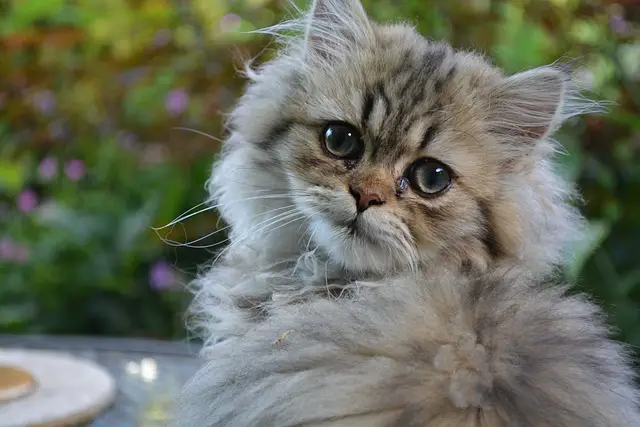Persian cats are known for their luxurious, long hair and docile, friendly personalities. However, when it comes to their diet, many cat owners wonder what foods are safe to share with their feline friends. One common question is whether or not Persian cats can eat human food.
While sharing your meals with your cat may be tempting, it’s important to know that not all human foods are safe for felines. Some foods can even be toxic and cause serious health problems. So before feeding your Persian cat any human food, it’s essential to do your research and consult with your veterinarian.
So, can Persian cats eat human food? Unfortunately, the answer is not a simple yes or no. While some human foods are safe for cats to eat in moderation, others should be avoided altogether. The following article will explore which human foods are safe for Persian cats to eat and which should be avoided.
Can Persian Cats Eat Human Food?
Persian cats are known for their luxurious coats, beautiful eyes, and gentle personalities. Unfortunately, these cats are also known to be picky eaters, and their owners often wonder if they can share their food with their feline friends. While it may be tempting to give your Persian cat a taste of your meal, knowing which foods are safe and which can be harmful to your furry friend is essential.
Foods That Are Safe for Persian Cats
Some human foods are safe for Persian cats to eat in moderation. These include:
- Lean meats such as chicken, turkey, and beef
- Cooked fish such as salmon and tuna
- Small amounts of fruits such as apples, bananas, and blueberries
- Vegetables such as cooked carrots, green beans, and sweet potatoes
- Plain, cooked pasta or rice
It is important to note that these foods should only be given to your Persian cat in small amounts and should not make up a significant portion of their diet. Additionally, any food given to your cat should be free of spices, seasonings, and other additives that can harm their health.
Foods That Are Not Safe for Persian Cats
While some human foods are safe for Persian cats to eat, others can be harmful or toxic to their health. These foods include:
| Foods to Avoid | Why They Are Harmful |
|---|---|
| Chocolate | It contains theobromine, which can cause vomiting, diarrhea, and even death. |
| Coffee and tea | Contain caffeine, which can cause restlessness, rapid breathing, heart palpitations, muscle tremors, and even death. |
| Onions and garlic | Contain compounds that can damage a cat’s red blood cells and cause anemia |
| Grapes and raisins | Can cause kidney failure in cats |
| Avocado | It contains persin, which can cause vomiting and diarrhea in cats |
Potential Health Risks for Persian Cats That Eat Human Food
Even if human food is safe for Persian cats to eat, it is essential to remember that cats have different nutritional needs than humans. Feeding your cat a diet high in human food can lead to obesity, digestive problems, and other health issues. Additionally, feeding your cat table scraps can encourage begging behavior, which can be challenging to break.
If you are considering feeding your Persian cat human food, you must talk to your veterinarian first. Your vet can help you determine which foods are safe and appropriate for your cat’s needs and can guide how to incorporate human food into your cat’s diet in a healthy and balanced way.
Conclusion
While Persian cats can eat some human foods, it’s important to remember that their digestive systems differ. As a result, many human foods can harm cats, and it’s always best to stick to a balanced, nutritionally complete cat food diet.
That said, some human foods, such as cooked chicken, fish, and vegetables, can be safely given to Persian cats in moderation. However, avoiding giving cats any toxic foods, such as chocolate, onions, and garlic, is essential.
Owners should always consult their veterinarian before introducing new foods into their cat’s diet. This will help ensure that their cat receives the proper nutrients and is not at risk for health issues.
[su_box title=”Affiliate Disclosure”]This website is supported by its readers. Please assume that all links are affiliate links. If you make a purchase from one of the links we will make a commission from Amazon. Thank you.[/su_box]




